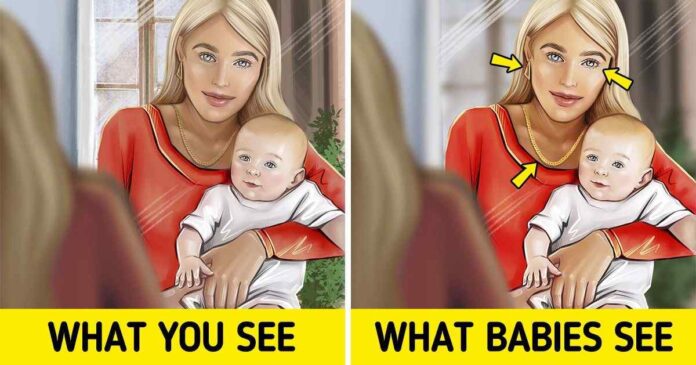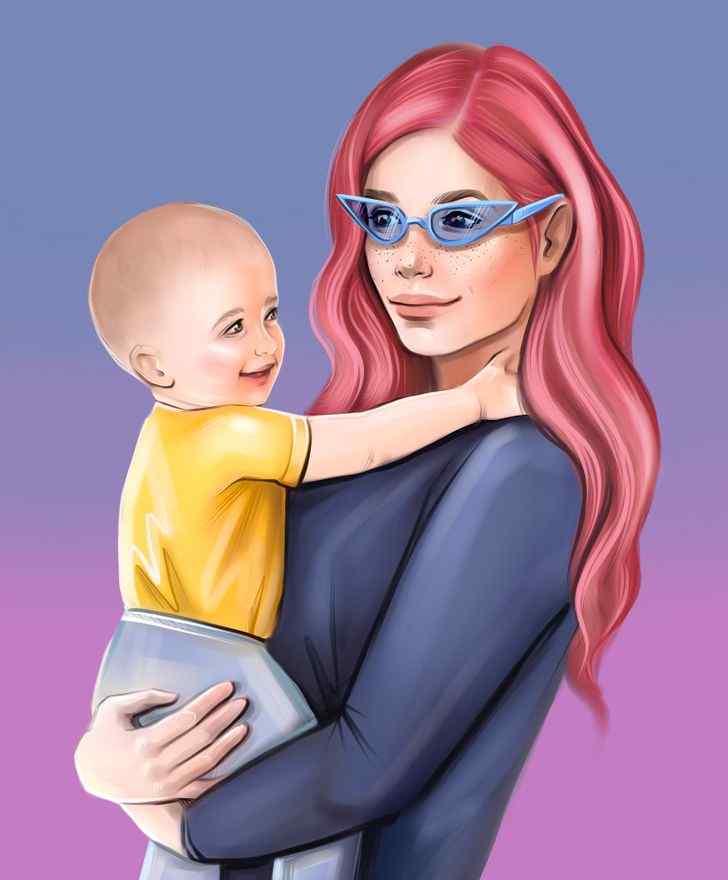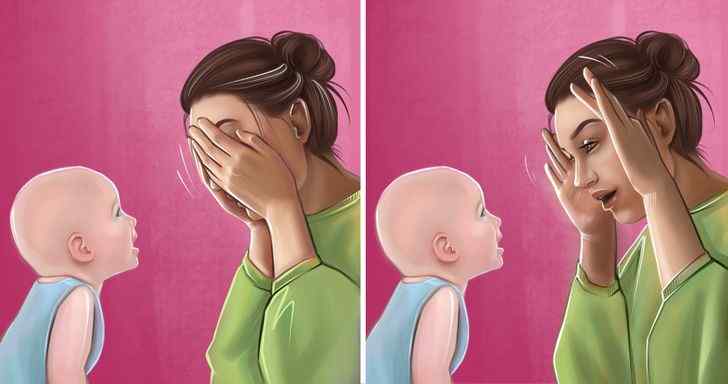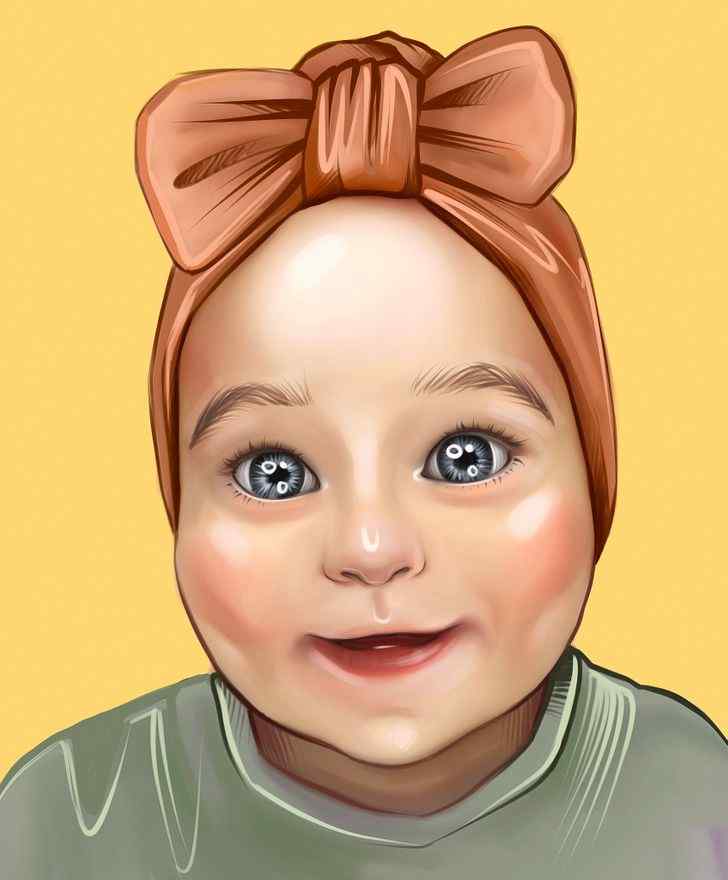
Don’t panic if you’ve ever observed your newborn looking intently at people or items; it’s quite natural. Because everything is new to them, babies are very curious about their environment and surrounds. Development plays a significant impact, but there are a few other factors to consider.
With this in mind, we conducted some research on the subject in order to understand why babies may stare at you for no apparent reason.
You’re dressed in vibrant colours.

As babies grow, their vision develops, and one of the most important aspects of that development is exposing them to bright colours. Newborns have an easier time focusing on objects with strong contrast and colours that contrast. As a result, if you’re wearing bright jewellery or clothing, you might notice your kid staring at you.
You have distinct characteristics.

Every day, everything a baby sees is new and different, so if you have a unique feature that the baby has never seen before — colourful glasses, a different beard shape, a more unusual hair colour, a lot of freckles — it’s likely that this will catch the baby’s attention and pique their interest in you.
They are attracted to motion.

Around the age of three months, newborns begin to notice movement. Sensory movement is critical for their brain development – ceiling fans or playing peek-a-boo are two examples of activities that can provide a lot of excitement while also making the infant gaze.
You’re their mother.

A study also found that babies can tell the difference between their mother’s face and a stranger’s face. From the third trimester of pregnancy, babies begin to identify their mother’s voice, and they can also hear their mother’s heartbeat, though it is low and muffled. An infant will utilise their sense of smell to recognise who is caring for them shortly after birth.
You’re stunning.

According to studies, babies prefer to stare at attractive faces. Researchers tested by showing babies certain faces that were deemed appealing and others that were seen less attractive (by adults), and the results revealed that the babies spent more time staring at the attractive face than the less attractive one.
It’s important to remember, though, that everyone is different in their own way, and babies have no idea what current society’s beauty standards are. If a baby is staring at you, it’s likely that you have a unique feature that the infant has never seen before.
